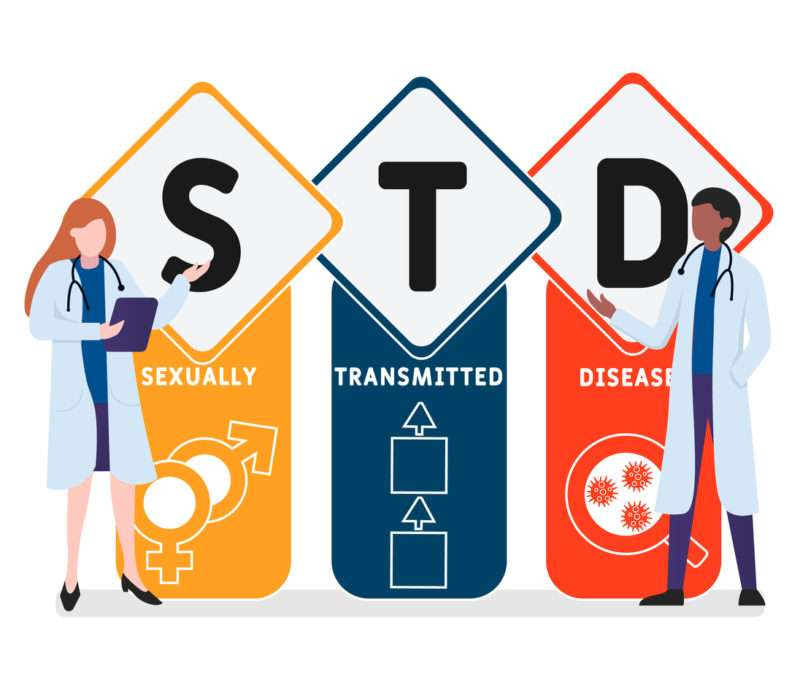
Sometimes, in the heat of passionate sexual encounters, people may forget to protect themselves. It's normal when this happens and there is nothing to be ashamed of. However, if you've engaged in sexual encounters with someone whose sexual history/health you know nothing of, then you should consider getting checked for a possible sexually transmitted infection or disease (STI/STD), as you may be at risk. You can never know for sure if you've contracted an STI or STD until you are tested. It is also a good idea to get checked before starting a new relationship. Telehealth can be used for these concerns/prevention.
Vaginal and Penile Discharge; What Does It Mean?
Experiencing penile discharge is a cause for concern. Having clear, cloudy (containing pus), or bloody penile discharge often accompanied by burning during urination is a sign of a possible STI.
Vaginal discharge is a regular occurrence that happens throughout a woman's menstrual cycle. Normal vaginal discharge appears white, watery, clear, stretchy, and sometimes brown/bloody, depending on the cycle phase. When vaginal discharge is more than usual or appears yellow/green, chunky/cottage cheese consistency, and /or foul-smelling, then chances of an STI are high.
General STI Symptoms
Below are some common STI symptoms. which can help you decide if you need to take the next step of consulting a healthcare worker for testing and treatment.
There are more than 20 types of STDs, including:
If you're worried about a possible STD, don't fret; schedule a visit to get a diagnosis and start treatment. Sometimes it can be a bit embarrassing bumping into people you may know when seeking medication for a sexually transmitted infection. Here's where telemedicine comes in.
Having an STD may feel like it but is not a dire and hopeless situation; some treatments and medications will clear/manage the diagnosis. When you find out that you have contracted an STD, we will help you navigate the murky waters of talking with your partners. It's required so that they can also be tested and start treatment if they also have an infection. What you will need at this point is to have close, non-judgmental emotional support to get you through.
Benefits of Telemedicine for Sexual Health
If you suspect that you've contracted an STD and are not comfortable visiting your local doctor for a consultation, then telemedicine may be a good option for you. This method of providing medical care remotely through video chat offers convenience and privacy besides being low-cost.
Care on Location is a telemedicine Urgent Care that specializes in sexual health prevention and treatment in all parts of Colorado. Care on Location sees CO Medicaid, commercial insurances, Medicare,Tricare and affordable self-pay ($69.99-$115) options. Our providers are LGBT+ informed, trauma-informed and provide inclusive care. Care on Location does phone-only and video visits, so that you can avoid uncomfortable visibility in the waiting room of your doctor's office. With us, your information will remain private and we will guide you on the treatment options if you are diagnosed with an STI. We offer inclusive and private options such as at-home testing, retests, treatment, and weekend/weeknight office hours.
Telemedicine is perfect for PrEP (Medication to prevent HIV transmission)
Most STIs can be prevented by having safe sexual intercourse. HIV can be prevented by taking the PrEP (Pre-exposure Prophylaxis) medication if your sexual life may expose you to HIV infections. We can be your PrEP provider and offer routine tests and retests. We cater to patients with Medicaid, but if you don't have insurance, our visit charge is $69.99. You can schedule a consultation online here.